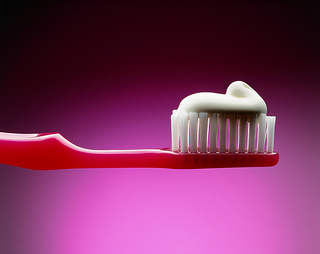The Link Between Dental Hygiene and Your Overall Health
August 12th, 2014

When patients of Princeton Restorative & Implant Dentistry hear any mention of oral or dental hygiene, they probably think of brushing and flossing their teeth. Although these are extremely important, the term dental hygiene encompasses much more than that. Your mouth’s health, including your teeth, has an important impact on your overall physical health. The National Institute of Dental and Craniofacial Research published the surgeon general's first ever report on dental health. It is called A National Call to Action to Promote Oral Health. In that report, the Surgeon General states that the 1948 World Health Organization expanded its earlier definition of health to "a complete state of physical, mental, and social well-being, and not just the absence of infirmity."
The Importance of Oral Health to Total Overall Health
One of the most important themes that the dental health report stressed is that you cannot be healthy without oral health. It went on to explain that oral health and general health are inextricably linked, and therefore can't be seen as two separate things. Because oral health is so critical to overall health, it should be included in all community health programs. For individuals, this means that it is just as important to take care of your mouth, your teeth, and your overall oral health as it is to take care of the rest of your body. The two most prevalent dental diseases are caries (cavities), also known as tooth decay, and periodontal (gum) disease.
Ways that Oral Health Impacts Overall Health
One important way in which good oral health contributes to better overall health is seen in the findings of several studies in which the blood sugar levels of diabetic patients were significantly lowered when their periodontal (or gum disease) was successfully treated. Your mouth has roughly 500 different species of bacteria. Many are harmless, and some are even good bacteria that help maintain the balance of your intestinal flora. Harmful bacteria can infect your gums, causing gingivitis. Your body's immune system may try to fight off the alien invaders, but they attack your gums, causing inflammation and bleeding when you brush.
Now that you know how important good dental hygiene is, be sure to see to get your teeth cleaned every six months, have regular dental checkups, brush and floss your teeth at least twice daily, and replace your toothbrush at least every couple of months. Call us to schedule your next appointment at our convenient Princeton, NJ location.







